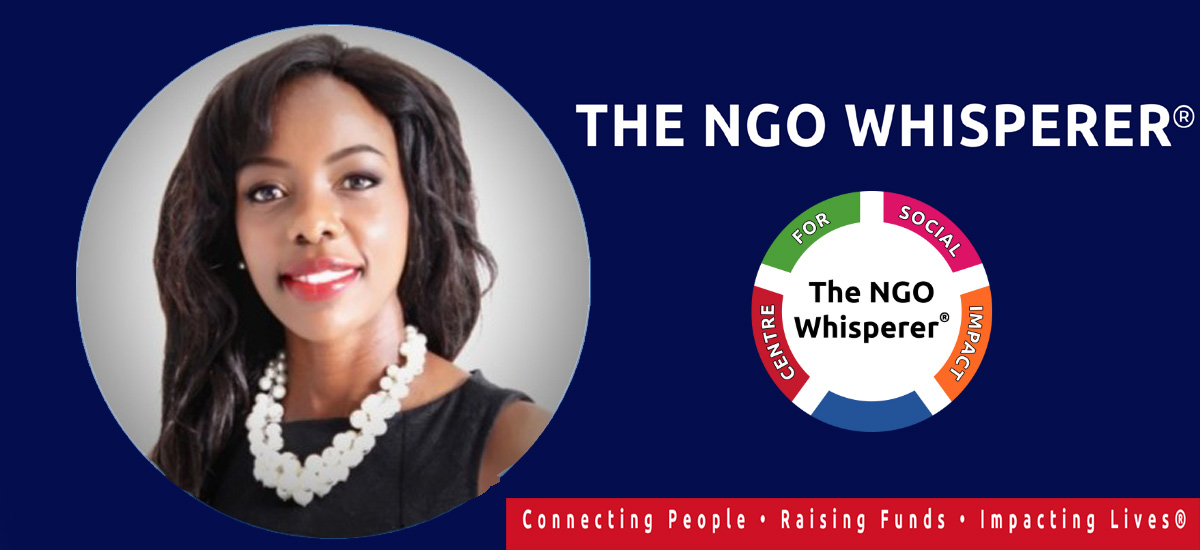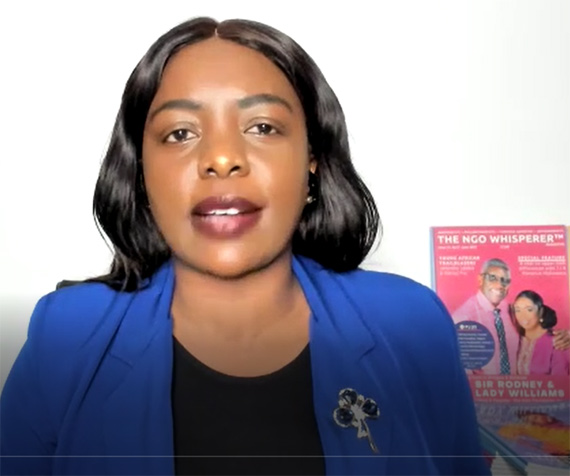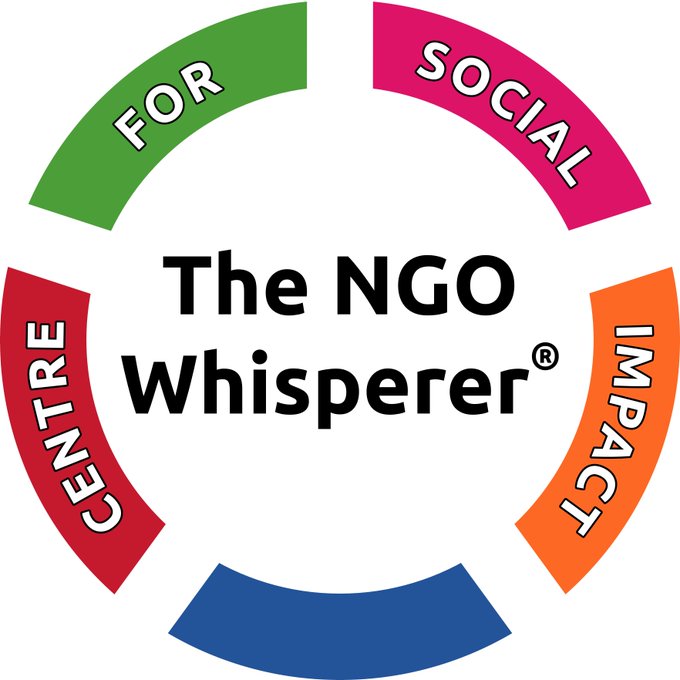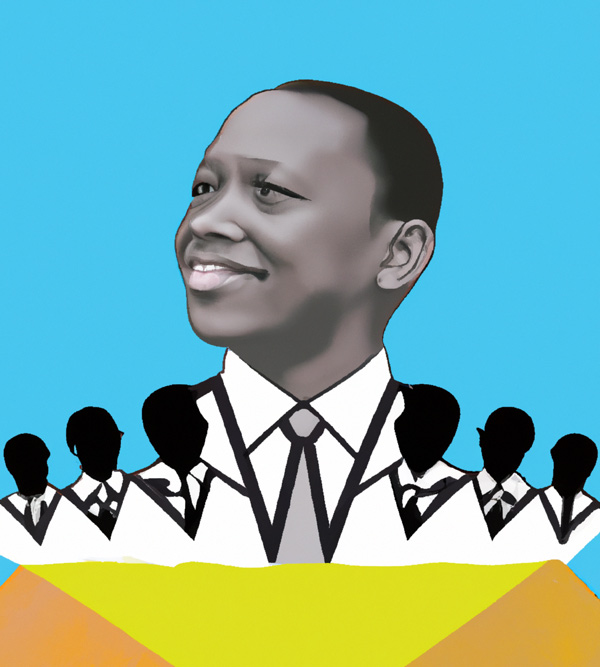Thought Leadership Studio Podcast Episodes:
Interview with Carolyne A Opinde founder and CEO of the NGO Whisperer
Episode 33 - Gain inspiration and insight from a multi-faceted approach successfully used to positively transform organizations.

#consulting, #insight, #inspiration, #interviews, #leadership, #nonprofits, #socialentrepreneurship, #systemsthinking
Or Click here to listen or subscribe on appWhat this episode will do for you
- Gain insight from Dr. Carolyne Opinde on how to see an organization as a whole to discover leverage points for positive change.
- Gain inspiration from Dr. Opinde's story of making a difference through organizational transformation of nonprofits (NGO's).
- Learn a multi-faceted approach successfully used to positively transform organizations.
- Discover deeper levels of your own leadership abilities through examples like the success story Dr. Opinde shares.
Dr. Carolyne Opinde, Founder and CEO, The NGO Whisperer Centre For Social Impact.
Carolyne Opinde is the founder and CEO of The NGO Whisperer Centre for Social Impact which is based in Manchester, England, United Kingdom and works with NGOs, governments and funding agencies to promote social innovation and investment for sustainable development.
Dr Opinde has nearly 20 years' experience as a Resource Mobilization Specialist and is a certified Project Management Professional. She has managed social impact projects of up to $20M and has raised over $100M.
Find Carolyne on Twitter as @CarolyneAOpinde and on LinkedIn.
The website for The NGO Whisperer is ngowhisperer.com.
Curated Transcript of Interview with Dr. Carolyne Opinde, Founder and CEO, The NGO Whisperer Centre For Social Impact.
The following partial transcript is lightly edited for clarity - the full interview is on audio. Click here to listen.
Chris McNeil: I'm Chris McNeil, host of Thought Leadership Studio, and I'm sitting here with Dr. Carolyn Opinde of the NGO Whisperer. Welcome, Carolyne.
 Dr. Carolyne Opinde: It's lovely to be here today. Thank you, Chris.
Dr. Carolyne Opinde: It's lovely to be here today. Thank you, Chris.
Chris McNeil: And it's great to have you. Can we start with you telling our audience about your mission and what you do in with the NGO Whisperer. .
Dr. Carolyne Opinde: I am the founder and the CEO of the NGO Whisperer Center for Social Impact based in Manchester, United Kingdom. And here at the NGO Whisperer, we work with non-governmental organizations. Some people call them nonprofits in other countries. They call them charities, social enterprises, governments, and funding agencies to promote social innovation investment for a sustainable world. So in a nutshell, that's what we do. That's what we offer to our clients.
Chris McNeil: And what's an example of a project that you would have with a client that would help them have more impact with their message? Say, if that's about sustainability and if they're a nonprofit, as we call them here in the United States. How would you help them organize their message to have more impact?
Dr. Carolyne Opinde: So, when nonprofits come to us, Chris, they come to us for several things, and we are talking about leaders. We are talking about social entrepreneurs, we are talking about government departments, sometimes philanthropists or funding agencies.
The first thing that they need support in is resource mobilization, mobilizing funds to be able to implement projects of various sizes. Most of our clients are small and medium sized non-governmental organizations or nonprofits that are wanting to make a difference, but do not have the capacity to raise the sufficient fund or enough funds that they need to make a difference.
In some cases, it's not just about funding as in financial resources, it's also connections connecting them with the right consult or partners. So that's under resource mobilization. And this is part of our six pillar sustainability model at the NGO Whisperer. Pillar number one is resource mobilization. Pillar number two ...
Chris McNeil: ...I'm interested in your model. What's it like? What's it about?
Dr. Carolyne Opinde: The model is, uh, something that I created. Okay, let me go back, . Okay.
Chris McNeil: Okay.
A Multi-Faceted Approach: The NGO Whisperer Model for Sustainability
Dr. Carolyne Opinde: The NGO Whisperer Model for Sustainability is something that I created when I stepped out of employment. And I was looking at all these amazing small and medium sized non-governmental organizations and social enterprises that are making a difference in their communities. And I notice a common thread.
They lack support in the area of resource mobilization, project management, managing the projects that they have been funded to effectively deliver on the promises that they have made, and also be able to deliver it so well that the funders or the donors actually give them more funding. So that's number two.
 Number three, it's on governance and organizational development. We are talking about the leadership. How is the organization structured? The board? No. As you know, nonprofits must have a board, board of directors, the chairperson, secretary, treasurer, and advisors. How is that structured? Is the board structured and the leadership structure that they have adopted good for them to the point that it helps them to be a sustainable organization?
Number three, it's on governance and organizational development. We are talking about the leadership. How is the organization structured? The board? No. As you know, nonprofits must have a board, board of directors, the chairperson, secretary, treasurer, and advisors. How is that structured? Is the board structured and the leadership structure that they have adopted good for them to the point that it helps them to be a sustainable organization?
Sometimes, even though we're doing good, there's a lot of infighting in organizations. That's where we come in.
Then the third, the fourth thing is on compliance and enterprise risk management. As you all know, the last two years, we all were at a risk of something because of COVID. So that is the fourth thing. And also being compliant. The fast compliance issues are related to the way organizations are structured. Secondly is reporting to the funders and the donors who have given you the money. They may be your customers to do your job. And thirdly, compliance to humanitarian rules and regulations on how you offer services to the people who are getting services from you. It could be underprivileged, uh, communities who must treat them with respect and dignity. So that's under compliance risk management.
The fifth one is on executive coaching. One-on-one, like you and I are having a session now. Sometimes I have such sessions where we are talking about issues that a certain leader is facing or advising them and helping them, guiding them. Sometimes we do this in a group setting with their teams executive coaching. Under that, we also have masterclass because we realized leaders need support, but sometimes they can't get that support within their organization. And our small and medium sized nonprofits, they need a place where they can go to be trained. So we have these masterclass throughout the whole year, ranging on different topics. Most of the topics that we offer are topics that have been asked for by our clients, who are these leaders. Mm-hmm. , uh, along with that is the fellowship program, which is a very exciting thing that I started in 2021. I found out that there are all these leaders who need continuous support, not just the monthly masterclass.
And so I came up with what we call the NGO West Global Fellowship Program. This is a six month rigorous program for those who are already in a leadership position and need support to take their organizations to the next level. We are focusing on leaders from all over the world, but we give priority to women and leaders who come from low and middle in income countries. Lastly, we have, uh, alongside with the executive coaching, um, is our global summit. And that's something we started last year in 2022. The Global, the NGO Whisperer Global Summit is a gathering of leaders of nonprofits, of, um, people in the business world for-profit, nonprofit governments, and anyone who is interested in making a difference in their communities to come and discuss ideas. The topic or the theme for the first one that we held in December, 2022, was the future of NGOs, non-governmental organizations. And lastly is the platform that we offer for public, public, um, relations to help nonprofits to showcase their work, to raise their visibility. And that is the NGO Whisperer magazine and the NGO Whisperer Podcast show. So that's what we offer to our clients.
NGO Whisperer Resource Links
What I'm getting is that you noticed systemic issues with NGOs or nonprofits that you've developed solutions for, where maybe an organization has a powerful mission, but because they aren't aligned internally, maybe like you said, there might be in fighting or the leadership needs development, or they need help with organizing resources and making connections. Like you are able to step back and see the larger pattern of these systemic flaws, so to speak, that you've developed this organization NGO Whisper to help them. Correct. And I imagine probably give 'em a quantum leap. Now, do you see you and your organization like interventionists who kind of come in and help them fix things so they can continue that way? Or more like ongoing partners and consultants? Or does it just depend on the particular situation
Dr. Carolyne Opinde: It happens in different ways. Sometimes organizations approach us because of what we have already put out there. They reach out to us and they say, we need help in this area. And when we go into their organization to find out, okay, how can we help you? We realize that there are other systemic issues that exist.
Noticing Systemic Issues in Organizations
And so we have what we call a diagnostic stage, where you are diagnosing what's happening in the organization, because sometimes people put their hands up and say, "we need money". And then you find out money is not the issue. They have donors and funders who want to fund them, but they actually don't know how to manage the projects. That's why they're losing their funding.
So we strengthen their project management as we support them in the areas that they have already identified. And because we work with organizations very closely, we meet them every week. So we have weekly check-ins, and once an organization starts to work with us, they commit to working with us at a minimum of two years so we can help them, because you can't really make an impact by writing one grant application and going your way. That's not how we work.
Chris McNeil: That'd be like performing one workout and expecting to get in shape from it.
Dr. Carolyne Opinde: Exactly... going to the gym, spending one hour and then coming back and like, "okay, I'm waiting for results" ... and you're not going every day. So there's consistency in that.
There's building relationship, interpersonal relationships. Many of these leaders now know me personally, even though we work virtually. I haven't met many of them face to face, but we have built relationships over time to the point that when we get into meetings, I can sense when there is tension and I can ask because I am coming in as an outsider and as a respected advisor to them. I can ask what's going on this week in the organization, you know?
Chris McNeil: Well, you, you're speaking very well to a lot of our audience that are consultants who learn that you have to get yourself into a position where you have leverage to make change.
And I'm noticing, and and correct me if I'm wrong, but would you not characterize yourself as someone who has the insight to see the patterns of the system quickly? And maybe that's something that's led to this?
Or what was the inspiration that gave you the vision? What was, what was the birth of it in your own mind, and what does bringing all this to life do for you personally that's meaningful to you?
Discovering a Mission and a Path Emerges
 Dr. Carolyne Opinde: Those are powerful questions that you have asked. So the first one, when you ask, how do I see this? When I get into an organization, because I previously was employed - I worked for a specific nonprofit, you know - starting from when I was very young in my early twenties when I graduated. So I am a bachelor of mathematics and chemistry graduate. And I stepped into the nonprofit sector because I wanted to make a difference and volunteer.
Dr. Carolyne Opinde: Those are powerful questions that you have asked. So the first one, when you ask, how do I see this? When I get into an organization, because I previously was employed - I worked for a specific nonprofit, you know - starting from when I was very young in my early twenties when I graduated. So I am a bachelor of mathematics and chemistry graduate. And I stepped into the nonprofit sector because I wanted to make a difference and volunteer.
So I started by volunteering because my mind was in stepping into Chemical Engineering because I started chemistry and mathematics, and I was thinking, I'm gonna be a chemical engineer, but in the meantime, on my journey, I would like to help nonprofits. So as a result, I stepped in and said "yes" to working with a nonprofit that was promoting HIV prevention at my university in Kenya, where I was born and brought up.
When I went to the interview, it lasted for five minutes, and the founder of the organization asked me, would you like a job? I said, yeah, I'm happy. I'll take the job, because it's work that you do in the evenings with the students. That's what I thought. He said, no, no, no, no. This is a full-time job. And then I stepped back and I was like, oh, wow. So this can turn into a full-time job. I called my dad and my mom and they said, oh, take it up while you are working your way to your dream of becoming a chemical engineer. And that working my way to that has become close to 20 years.
Chris McNeil: That's awesome. So making a difference is important to you. That's one thing I'm seeing
Dr. Carolyne Opinde: That is it. Making a difference in people's lives.
And when I found out that I can do this, then I started learning because I didn't learn this in school. And later I joined the University of Salford, which is based here in Manchester. And I studied project management because I wanted to learn how to manage projects effectively.
Discovering Leverage Points
I saw that in my work. Funders who really loved our work, wanted us to do great reports, to share the reports, to manage the finances well, and to update them frequently.
And so as I was looking at all these courses and I asked myself, "what can I study that can help me to be an authority in this field?"
Project management spoke to me, and so I studied project management, and after that we were asked, when you are applying, you have to give a motivational letter to say, why do you want to do this? My statement was, I would like to establish a hub. I still remember that I wrote it up at midnight, and I was like, I want to establish a hub where nonprofits can come and learn and grow and be equipped no matter their size, no matter how much money they have.
Hence, some of our services that we offer is a scholarship to these leaders who cannot afford to pay for it.
Chris McNeil: Well, that's awesome. So leadership development is a big piece of it. And the insight to notice these larger patterns that you've addressed with project management.
And your passion clearly comes through for making a difference.
And what a great role to be in where you can impact nonprofits. Because I've been involved with nonprofits. I sit on the board of one and I've been involved with organizations that partner with nonprofits. Doing so as part of fundraising for youth sports is one. And there's another one that does it as part of migration to renewable energy, where they partner with other nonprofits.
And there certainly are systemic issues. And the founders of these nonprofits can have such a powerful vision, but if you don't have the deep leadership training and support and skills, the organization skill - I'm seeing both the leadership part and the organization part.
But what a great way to give confidence to donors who would feel more confident donating more when they see how much better their donations are being put to work with the kind of increased efficiency or effectiveness that you would help bring to an organization. And it must be very satisfying work.
Leaders Developing Leaders
 Dr. Carolyne Opinde: It is.
Dr. Carolyne Opinde: It is.
Actually in the next few, um, weeks - it's on the 25th of February - we have the graduation ceremony for our global fellows class of 2022. They went through our global program from July to December. That's the period that we offer these classes. And I was interviewing them for a podcast because I want to share their stories.
It's amazing how their mindsets have changed first and foremost as leaders, because I interviewed them when they joined. And then when they are exiting, we also do the same. And I can see the difference. There's a difference in their leadership styles, how they have progressed. Many of them used to do everything by themselves, and they learn that leadership is about delegation and giving direction and casting your vision, and then bringing in people, putting together a team that will support you. Otherwise you'll have burnout.
And as you know, many people, especially if you founded anything, many people struggle with the founder's syndrome... of letting go, letting others lead. And I have seen over and over again that these leaders are now at a level where they're comfortable. They have trust, they have built trust with their teams, and they themselves.
Sometimes we don't trust ourselves. They've built trust with themselves, and now they're ready to focus on strategic issues as they let other people within the organizations deal deal with tactical issues and everyday business running around doing stuff. So that is evident in our work, and I can tell so many stories about the difference it has made in individuals lives as leaders.
Combining Leadership of the Mind with Heart-based Leadership
Chris McNeil: I'd love to hear such a story.
And you're describing this on multiple levels too. There's both the intellectual aspect of being able to manage an organization and see it as a system and how the parts interrelate with each other. But you're also speaking to things like trusting yourself and believing in yourself and believing in others, which is to me, is speaking to heart-based leadership: believing in yourself and others believing in your mission.
So just both the intellectual aspect of helping an organization function better by understanding how the parks work together and making it work better. But also just to believe in yourself and to believe with that you can make things happen and you can let go and others can make things happen by you're empowering them.
What's a story that's really a shining example of this for you?
A Success Story in Fulfilling Multiple Roles in Nonprofit Leadership
Dr. Carolyne Opinde: I will share a story of our global fellow class of 2021, because now I can share interacting with this gentleman. His name is Wilfred. Wilfred is a founder of a preschool in Nairobi, Kenya. He offers opportunity to children age four to about six going to seven who come from underprivileged communities. These are slum areas in formal settlements. And he established this preschool to provide early childhood education.
On the other hand, Wilfred is employed by another nonprofit where he's the programs coordinator and it is called Ethel Foundation for the Aged. They work with senior citizens to give them dignity, to promote support for elderly persons. He's working with both the young, very young and very old people. And at the center of what he does is care and dignity - as much as you're providing education for small children who come from underprivileged community, we are doing it with dignity.
The same thing with the older person, senior citizens who don't have much support, unfortunately in many communities. The difference that I see in what he's doing now is being able to manage these two roles. One is something that he founded and the other one is a job that he has. And he was struggling with both of them.
He was focusing more on the job when he was talking about what he's doing and the impact that he's making. And he was forgetting about the stories of the children and how that would work. And I remember having a conversation with him and he asked me, "Dr. Carolyne, how do I tell stories that I work with older persons and I also work with a young, and I walk the journey through." And I told him, "find ways in which you can tell everyday stories and how this can work.
"And also find people at the preschool who you trust so that when you are working with the elderly persons", because he divides his days, you know. Some days he's here, some days he's there. Make sure that that person is equipped. Bring that person to our one-on-one session.
So he brought the team to our one-on-one session and I told him everything we share, find one person in the organization that you can impart that knowledge. So he got into the global fellowship program, followed up when other people are doing one assignment because they have one organization. He had to provide assignments for two organizations... development plan, leadership plan for two organizations.
Today, he is now being recognized as a leader. He is a social worker by training. That's what he studied. And he has been recognized by the Association of Social Workers. I see him presenting at conferences. I cannot catch up with him anymore. I just see him posting these things on social media. I'm at this conference, I'm here, I'm there. I'm sharing knowledge. This is someone who could not speak our interview. He barely could handle what we are doing right now. Now podcast. Now he's speaking front of people.
Chris McNeil: And isn't it satisfying to facilitate the growth of people like that and to watch them flourish and become all that they can be? Especially when you're working with the kinds of organizations.
I'm hearing some unifying values like dignity come up, and I imagine that's a high value for you. And these organizations help bring more dignity to older and younger people, those in need. And that's certainly a core value in leadership to recognize that in yourself and others. And that's powerful.
So where do you see NGO O Whisper, Dr. Opinde, where do you see the future? How do you see the biggest impact you would like to make with your work going forward and your own personal growth and your impact on others?
Dr. Carolyne Opinde: I will start with my own growth as an individual. Um, the work that we do is a lot, and it deals with matters of the heart, but also it is technical in so many ways. What I would like to see myself grow in is grow to a point where I am an authority in my field, and I have impacted the knowledge that I have, the values that I have to other people, especially women who are in this field. I'm based in the UK ma uh, Manchester, United Kingdom. I have a heart for Africa, for the Caribbean and Asia Pacific specifically, uh, in low and middle income countries. Those are the areas where we work. We still have clients in United States, in Canada, and here in Europe. But I want to build a movement of women who are making a difference, not just in their communities, but around the world, through what I have been given, because I believe it is a gift, it is a talent, and it's not for me, it's for others to learn from me.
So we are doing that. And the fellowship program, like I said, we focus mainly on having women. We also have men, but we all focus mainly on having women come in as an organization. The N G O Whisperer Center for Social Impact, the future looks great, looks bright. We are looking at building partnerships with leaders such as you and the work that we do, and expanding it globally to the point that we can have hubs of the NGO O Whisperer, um, in around the world, maybe in every continent, and have those hubs as a training center where people can actually come and spend time and learn. Leaders can come and rejuvenate because in their organization, sometimes they don't get the time to unwind because everybody's asking them for something. So this is my vision for where we are going. We might achieve it in the next five years or so, but we are getting there.
.............
The transcript is lightly edited for clarity and is a partial transcript- the full interview is on audio. Click here to listen.
***************************************
Free Stuff and Offers Mentioned in Podcast
***************************************